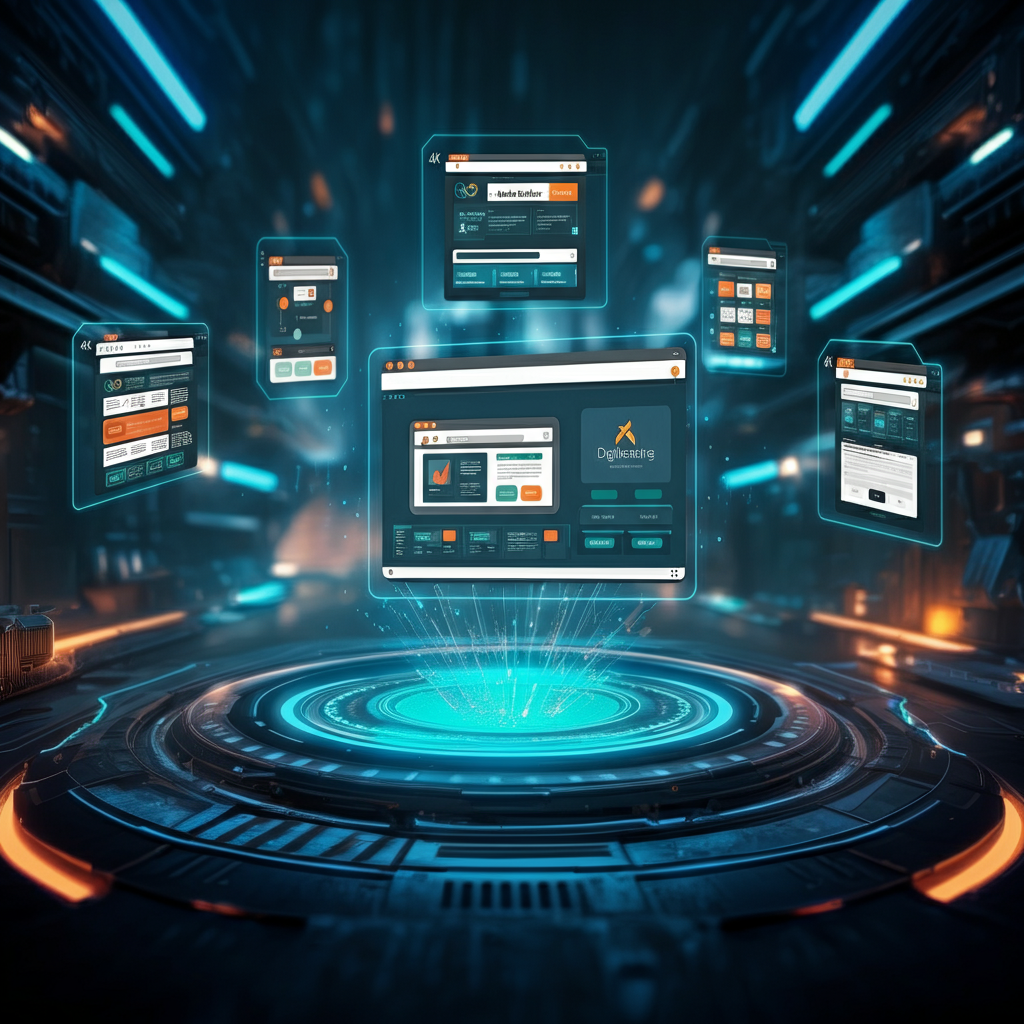How AI is Transforming the Legal Industry
Automation, efficiency, and innovation are reshaping industries across the globe, and the legal sector is no exception. Artificial Intelligence (AI) is not just a buzzword in technology; it is a game-changer for attorneys, legal teams, and courtrooms. But how exactly is AI shaping the legal industry, and what will legal technology look like by 2025? This post explores the emerging AI trends impacting attorneys and firms, revolutionizing the way legal work is done today and evolving tomorrow’s legal landscape.
AI in Law Today
Revolutionizing Legal Research
Legal research may be one of the most time-consuming tasks for attorneys, but AI is significantly reducing the hours spent poring over case law and legal texts. AI-powered platforms like LexisNexis and Westlaw Edge employ machine learning to quickly analyze vast databases, providing precise and relevant case law, precedents, and statutes.
For instance, company data shows that attorneys using Westlaw Edge save 30% more time on research compared to traditional methods. This frees up their schedule, allowing more client-focused tasks and strategic planning.
Document Insights with Natural Language Processing (NLP)
Natural Language Processing (NLP) enables software to “understand” legal jargon and extract critical insights from case documents or clauses. AI-driven tools, like Kira Systems or Evisort, help legal professionals comb through countless contracts to find key clauses or areas of non-compliance in seconds. This cuts contract review by 60%-70%, saving both time and money.
Automating Routine Tasks
Repeating administrative work eats up valuable time in many professions, but perhaps nowhere as much as in law. Tasks such as billing, scheduling, and document drafting once relied on human attention.
- Tools like TimeSolv or Clio automate invoicing, pulling accurate data straight from file records.
- Platforms like LawGeex ensure automated contract drafting follows corporate compliance—as accurately as a seasoned paralegal.
By eliminating repetitive tasks, legal professionals can deliver better outcomes faster.
Enhancing e-Discovery
Gone are the days when law firms had to spend weeks analyzing evidence across terabytes of emails, files, and messages. AI transforms eDiscovery, making the task faster and more accurate.
Modern platforms, like Relativity and Everlaw, filter through massive digital evidence to surface relevant data, saving lawyers up to 70% of discovery time. By detecting patterns that human teams might overlook, AI enhances the accuracy and relevance of collected data.
Predictive Analytics for Case Outcomes
Predictive analytics use algorithms to determine the likely outcome of court cases, offering lawyers an edge during strategy development.
AI-powered tools like Premonition analyze previous case outcomes based on variables such as judge history, jurisdiction, and types of arguments presented.
If a particular strategy historically fares better in front of a specific judge, attorneys can incorporate that insight when preparing their case. This data-driven approach empowers firms to offer more confident, transparent services to their clients.
Legal Technology by 2025
Predicting what legal AI will look like in 2025 requires considering not just technology’s exponential growth but also the unique demands of the legal sector. Here’s how upcoming trends will redefine the future of law practice:
Virtual Litigation Support
By 2025, virtual courtrooms powered by AI may become more commonplace. Courts worldwide adopted remote hearings during the COVID-19 pandemic, but AI could take it further. Virtual assistants could digitally organize court dockets, manage documentation during hearings, or even assist judges with evidence analysis during trials.
Sophisticated AI platforms could align datasets across all parties involved in ongoing disputes, ensuring each side is working off consistent factual grounds.
Smarter Compliance and Risk Management Tools
AI will continue evolving to help law firms stay compliant with national and international regulations. By 2025, smarter tools like RegTech AI are expected to flag loopholes and generate instant updates to contracts as laws change. This eliminates delays while also improving multi-jurisdictional compliance for international operations.
Personalized Client Interactions
AI chatbots such as DoNotPay already answer basic legal inquiries for hundreds of users daily. By 2025, personalized AI virtual assistants will go deeper, offering services like contract reviews, automated legal letters, and even basic dispute mediation. This empowers those with limited resources to access affordable, reliable legal advice.
Human creativity and emotional discretion will still play a significant role in client cases, but much of the preliminary client interaction and case preparation will shift to AI-led solutions.
AI-Powered Cybersecurity for Law
With cyberattacks targeting more sensitive information in law, AI tools like Darktrace will only grow in sophistication by 2025. These systems will detect breaches, neutralize threats, and even ensure any personal data in contracts or case files remains fully encrypted.
The Challenges of AI in Law
While the advantages of AI are clear, its adoption in the legal sector comes with challenges:
- Bias in Algorithms: AI models trained on flawed or biased data could generate discriminatory analyses. Ensuring transparency and neutrality remains a pressing concern.
- Ethics and Responsibility: Who holds responsibility for AI-assisted decisions? Law firms will need clear guidelines to manage these ethical challenges.
- Upfront Costs: Advanced AI tools may stretch tight firm budgets, especially for small practice groups. Firms investing early in AI solutions must weigh initial costs against long-term benefits.
Why AI Matters for Lawyers Today
With benefits like efficient time management, improved client relationships, and data-driven insights, the role of AI in legal practice cannot be overstated. Yet this transformation isn’t just about streamlining processes; it’s also about making the legal profession more accessible and equitable for all.
Whether assisting Fortune 500 companies or assisting individuals with small claims, AI can help legal systems deliver consistent and timely outcomes in ways we could only dream of a decade ago.
Are you ready to explore AI for legal work? The future is happening now, and integrating AI into your practice will keep you ahead of the game.
Leave a comment
Your email address will not be published. Required fields are marked *




